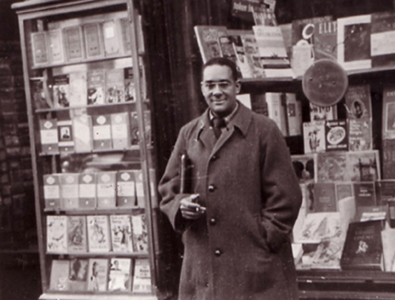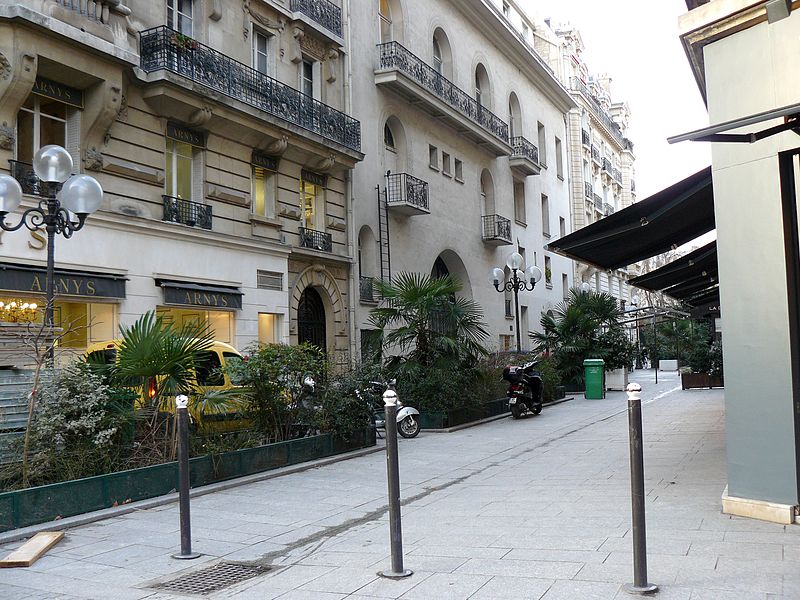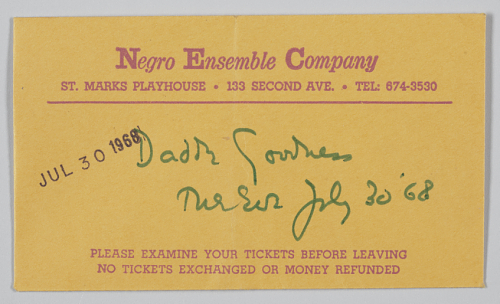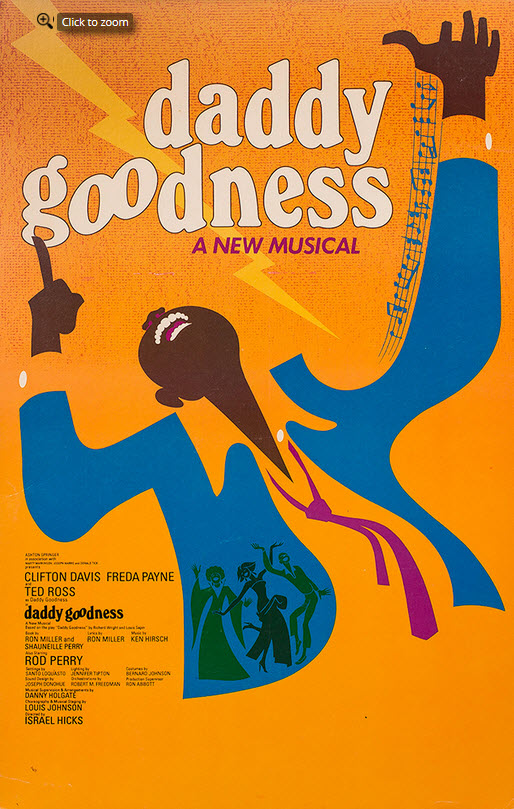
Thursday, September 26th, 2019
Daddy Goodness - A Play by Richard Wright
Following up to last week's post on "Blacks on Stage in Paris This Fall," I was inspired to explore the story of Daddy Goodness, a little-known play written by Richard Wright.
The story began in 1956, when Wright saw and enjoyed a performance of the Louis Sapin play entitled Papa Bon Dieu. Roles were played by actors from the Théâtre Populaire Africain. Sapin asked Wright to adapt the play for a U.S. audience, which Wright readily agreed to do. He rewrote the script, moving the setting to the American South.

Richard Wright at Daphne Adeane Bookstore in Paris, 1956
Image courtesy of private collector
In 1957, there was interest in staging an off-Broadway production. But Wright did not agree with the changes the financers wanted him to make in the plot, so he declined the offer. He subsequently found a woman in London who was willing to underwrite the production of Daddy Goodness as a musical comedy, but this did not come to fruition either.
The Théâtre Populaire Africain was to have performed Daddy Goodness in 1958, but I have found no information to confirm whether this actually took place.
An English-language reading of the play was organized for February 19, 1959 at the USIS* Theater on rue du Faubourg Saint-Honoré. Among the performers reading parts were American restaurant owner and professional actor Leroy Haynes, artist Larry Potter, and singer and restaurant / night club owner Inez Cavanaugh. Fred Hare, who was the director of the American Theatre Association of Paris, liked the play and decided to have the association produce it. He selected Leroy Haynes to play the lead role in the production.
Rehearsals with a cast of professional actors began on April 12 but finding adequate funding was problematic. A "bare bones" performance without sets or costumes held at the American Embassy Theater on May 4 did not raise significant interest in the project and several cast members left the play for better paying roles elsewhere. Fred Hare intended to raise funds by selling stock in the play but his efforts failed.
Wright decided to abandon the project out of fear that the remaining actors would not be able to be paid. On May 27, 1959, a reading at the Récamier Theater - with sets and costumes - was the last time Daddy Goodness was performed in Paris. Wright gave the script to Langston Hughes during Hughes visit to Paris in November 1960, just days before Wright died.
 Rue Récamier - Site of old Théâtre Récamire at the left
Rue Récamier - Site of old Théâtre Récamire at the left
Siren-Com
CC-BY-SA 3.0
The Negro Ensemble Company staged Daddy Goodness during its first repertory season in 1967-68. Artistic director Douglas Ward took on the role of director of the play when he found that other theater directors did not see the potential in the script that he saw. Though brilliant performers such as Moses Gunn, Rosalind Cash, Esther Rolle, and Denise Nicholas were cast in the play, the New York Times gave it a lackluster review in June 1968. Overall, reviews were mixed.
The National Museum of African American History and Culture holds archival materials consisting of a ticket stub, ticket envelope, and program for the July 30, 1968 performance.
 Ticket Envelope for Song of the Lusitanian Bogey and Daddy Goodness
Ticket Envelope for Song of the Lusitanian Bogey and Daddy Goodness
NMAAHC archive
Eleven years later, Daddy Goodness was revived as a musical.
 Daddy Goodness - advertisement for the musical production
Daddy Goodness - advertisement for the musical production
Destined for Broadway, it opened at the Forrest Theater in Philadelphia and moved on to the National Theater in Washington, D.C. in September 1979. As with the NEC production of the stage play, it received lackluster reviews. The show never made it to New York.
*USIS = United States Information Service

 Our Walk: Black History in and around the Luxembourg Garden - Click here to book!
Our Walk: Black History in and around the Luxembourg Garden - Click here to book!